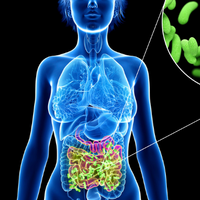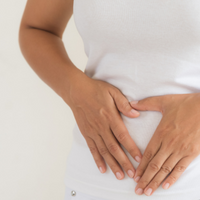Your Gut Microbiome Health and Sleep
Sleeping is one of the most important biological processes in the human body. Although you may take it for granted, resting at night provides an array of health benefits. You only realize the importance of sleep when you don't get enough of it. Scientific research all over the world has shown strong links between the quality of sleep and the gut microbiome in humans. The circadian rhythm is another important factor in such a vital relationship. Let's explore some common issues that connect digestive health with sleep and rest.
Relationship Between Sleeping and Digestive Health
Your gut microbiome is directly connected to the central nervous system. Billions of nerves link the intestinal linings with the brain, which is obviously the command-and-control center of your body. When you don't get enough sleep, the live organisms inside your digestive tract will respond accordingly. A disrupted circadian rhythm could shift the natural balance of beneficial and harmful bacteria inside your gastrointestinal system. A lack of sleep could also impact your natural metabolism in numerous ways. For example, the metabolic rate might speed up when you stay awake for most of the night. When you fall into a deep state of rest, the metabolic processes slow down significantly. The microbiota inside your gut will respond to the metabolic parameters throughout the day and night. Some of the gut-friendly bacteria might be harmed because of slow or fast digestion of nutrients.
The extremely sensitive nerves inside your intestines also respond to stress that comes from other parts of your nervous system. For example, you might feel anxious about your job, work and other issues in daily life. The mental stress will ultimately send electrical impulses to different parts of the GI tract. Consequently, the gut microbiome could be compromised by the constant flow of harmful chemicals in the nervous systems. When you don't get sufficient sleep, the central nervous system becomes overactive. The disrupted circadian rhythm may create a vicious cycle of fatigue, mental stress and physical strain on the digestive system. If the microbiota colonies continue to receive lots of stressful neurological impulses, you might suffer from irregular bowel movements. The gut microbiome will also be hindered by an increased flow of blood to the intestines. When you feel anxious or stressed out, the metabolism rate will change significantly. Excessive circulation of blood and neurological stress will lead to a gradual deterioration of the healthy bacteria inside the intestines. In fact, the harmful bacteria colonies will eventually take over the entire gut microbiome.
How To Improve Your Sleeping Quality and Gut Health
By getting enough sleep on a regular basis, you could ultimately stabilize your gut microbiome. The quality of the rest at night has a stronger impact than the duration. Fragmented sleeping could actually be harmful on your digestive tract and other body parts. If you wake up frequently throughout the night, you may not achieve a deep state of rest that's essential for restoration and rejuvenation of different body parts. You should closely optimize your natural circadian rhythm by following a rigorous schedule on a daily basis. Try to fall asleep at around the same time every night. You should also manage your metabolism through a carefully planned diet. Avoid heavy meals a few hours before going to bed. However, you should not go to bed in a hungry state. The microbiota inside your gut will respond to your sensation of hunger or thirst. Some of the bacteria colonies might actively consume nutrients that should be used by other parts of the body. Similarly, the bacteria could also digest the intestinal linings when there is a lack of food inside the gut. By reducing stress from your daily life, you can induce better sleeping patterns in the long term. Anxiety will certainly keep you up at night. Consequently, your gut microbiome will suffer when you continue to experience physical and mental stress.
An imbalance in the gut microbiome might prevent you from getting enough sleep. By adding probiotics to your diet, you could balance the microbiota inside your intestines. The beneficial organisms will properly digest various nutrients that must be eventually absorbed by your body. You could also consume prebiotics that enhance the growth of the probiotics inside the GI tract. A prebiotic is a fiber that can't be readily digested and absorbed by the human body. However, the beneficial bacteria colonies inside your gut will properly break down the natural fiber. When there's a proper homeostasis of prebiotics and probiotics, you will enjoy regular bowel movements. You could easily find lots of food items that are packed with naturally occurring prebiotics and probiotics for your digestive health. For example, most fermented foods are loaded with a high content of gut-friendly bacteria. Sour and dairy products are some common examples of probiotics on the market. Some roots and vegetables are also rich in fiber for feeding the beneficial bacteria.








0 comments